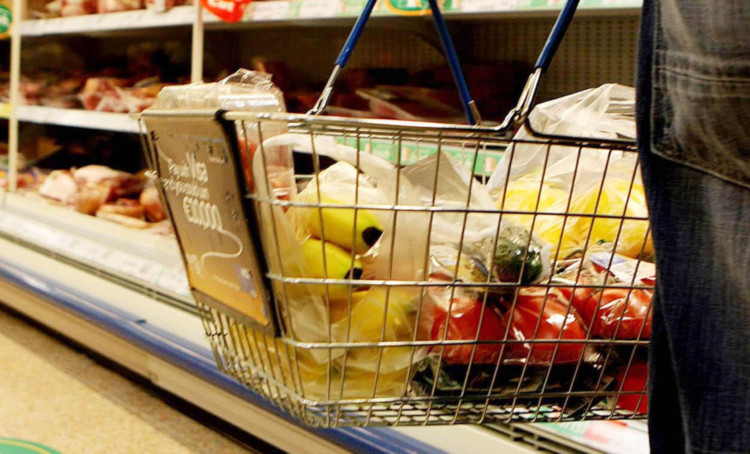
With food prices rising faster than inflation, many people are struggling to simply eat.
The cost of living has dominated politics this autumn, but one vital element has been largely overlooked food. The cost of filling the fridge is rising faster than inflation.
For all the talk of people having to choose between heating and eating in the wake of another price hike by the energy companies, some people are struggling to eat at all. The proliferation of foodbanks and the doubling of demand at their doors under this government is testament to that.
Food, for all its apparent simplicity, is a complicated business.
Global commodity prices have risen in recent years for a number of reasons including rising petrol prices and freak weather affecting harvests. Laura Sandys is a Conservative backbencher campaigning on the issue of food.
She explained: “We’ve had a world with a business model that’s been generated around cheap food. Once cheap food becomes much more expensive the whole system gets quite stressed. The thing I care about is not the system, it’s the consumer, and it’s the consumer that’s feeling the hard end of the problem. The supermarkets’ proposition is stack it high and sell it cheap. If it’s no longer cheap you start to get some disruptions in the sector, such as the horsemeat scandal.”
The Commons will debate horsemeat again this week when two reports from the select committee that deals with food and the environment come before MPs. Expect Environment Secretary Owen Paterson to express his usual exasperation.
The episode was an inevitable result of rising prices. Something in the supply chain had to give if retail prices were to be kept stable.
Explained Sandys: “Price points are so important to supermarkets. A famous frozen food company sell a nice cottage pie for £1, it was £1 six years ago and it still is. What’s in it? Probably quite different ingredients to six years ago. But there’s no flash on it that says what they’ve now got in it. What’s happening is that the consumer is absorbing the inflation inadvertently.”
Tampering with ingredients is one way shoppers are deceived. Another is bogus special offers or reducing the size of products for the same price.
Sandys said: “I call it micro deceit a bit of squeezing here, a bit of shrinkage there. But it impacts on consumers and if companies are pulling a fast one to the tune of just one or two pence, across the whole customer base, they are making a lot of money.”
Sandys was disappointed that David Cameron didn’t create a beefed-up Consumer Minister of State in his recent reshuffle. She said: “As markets become more complex we need someone standing up for the consumer.”
Since Ed Miliband’s conference speech, the issue provokes comparisons with the energy sector. Miliband claims the energy market doesn’t work, hence his proposed price freeze while it is reset. Isn’t the food market similarly flawed?
Said Sandys: “I think any sector that has so few very large operators has a tendency to be flawed. Supermarkets are finding life very difficult at the moment. I’m not sure they know how to respond to a different business model. They need to concentrate on margin rather than quantity.
“I worry about my poorer constituents who are buying things they don’t necessarily need and waste is being pushed through the system at both ends.”
An end to the wasteful pile it high and sell it cheap model in other words. Sandys is in danger of looking like another out of touch Tory calling for better quality food that is more expensive.
However, she’s not like the former Food Minister who told people to make the most of their scraps then was found to own an estate on which he distributes bread to the poor as part of an ancient ritual. Sandys’ seat of Thanet in Kent includes down-at-heel seaside resorts that are among the most deprived parts of the country. And talk of waste is timely. Wednesday is World Food Day with events taking place across the world to highlight the issue of food waste.
Sandys doesn’t just talk the talk on this issue. She set up Ugly Food, a firm dedicated to getting misshapen fruit and wonky veg into supermarkets. She said: “People will buy ugly food if it’s marketed properly. My dream is to get George Clooney on the packet saying, ‘Come eat Ugly Food with me!’ the things would walk out the door!”

Enjoy the convenience of having The Sunday Post delivered as a digital ePaper straight to your smartphone, tablet or computer.
Subscribe for only £5.49 a month and enjoy all the benefits of the printed paper as a digital replica.
Subscribe